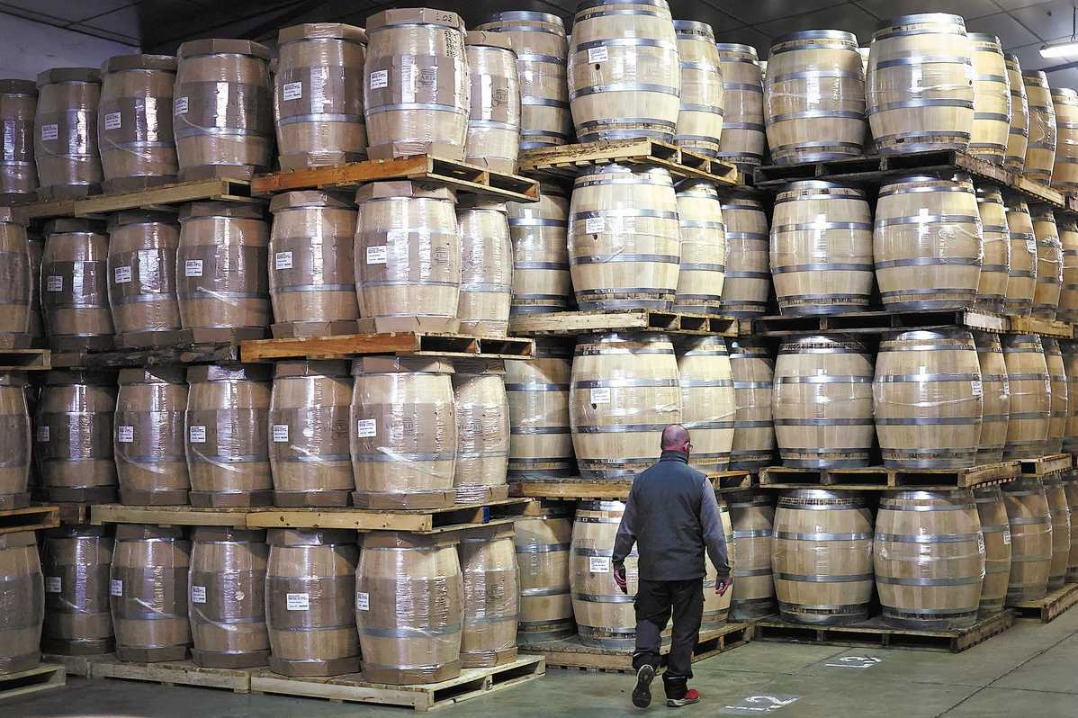May hoping Brexit deal will pass at fourth attempt


British lawmakers are likely to be asked the same question for the fourth time this week – whether they support Prime Minister Theresa May's proposed European Union withdrawal deal.
Members of Parliament have already emphatically said "no" three times to the deal she negotiated with the EU, but the margins have narrowed incrementally each time, after starting with a 230-vote annihilation, progressing to a 149-vote rout, and finishing on Friday with an almost-respectable 58-vote defeat.
The Financial Times said May held a conference call on Sunday with members of her Cabinet, to talk about bringing the legislation back for another try.
MPs, meanwhile, are seeking an alternative to May's unloved deal and will debate possibilities on Monday. Options range from leaving the EU without a deal, to not leaving at all. Middle-ground proposals include a future relationship in which the UK remains within the EU's free-trade area, and the UK continuing to belong to the EU customs area. MPs will also debate the merits of a second referendum on whether the UK should leave the bloc, something more than 6 million people have called for in a petition to Parliament.
MPs debated alternatives to May's deal last week without identifying a clear favorite but the BBC predicts continued membership of the customs union will emerge as one.
Justice Secretary David Gauke said on the BBC's Andrew Marr Show that there are "no ideal choices" but that, if MPs fail to back May's deal, a softer form of Brexit is likely.
"Sometimes, you do have to accept your second or third choice in order to avoid an outcome you consider to be even worse," he said.
Britain was originally slated to leave the EU on March 29 but, with Parliament unwilling to support May's deal and with MPs unable to find an alternative, the process stalled. The EU has pushed back Britain's exit date, now saying it must choose to either leave without a deal or remain an EU member by April 12. May can also negotiate a longer extension.
In a bid to win support for her deal, May has told her backbench MPs she will step down as party leader if they back it. And she has said she may call a general election if the deadlock is not broken, a threat that is likely to force MPs in marginal seats to get behind her deal for fear of losing their jobs.
If an election is called, the opposition Labour Party is well placed to win. A poll published on Sunday by research group Delta found 41 percent of decided voters planned to support Labour and 36 percent May's Conservative Party.
Tom Watson, Labour's deputy leader, said his party will almost certainly campaign for a second referendum.
May has been under massive pressure to deliver on the result of the 2016 referendum in which British people narrowly chose to leave the EU. Many MPs believe leaving the block would be very bad for the UK's economy and do not want to honor the referendum result. Others want to leave with no divorce deal in place.And, if May needed any more pressure, 170 MPs, among them 10 Cabinet ministers, have signed a letter demanding the UK leaves the EU by May 22 "with or without a deal".
The Sunday Times says some pro-Brexit Cabinet ministers are also threatening to resign if May supports the UK remaining a member of the EU customs union, or if she asks the EU for an additional delay in the UK's exit from the bloc.
































